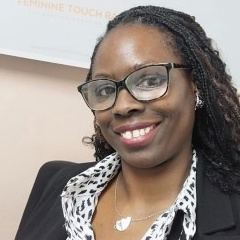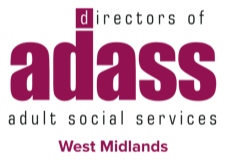The following contribution is from Cornita Taylor, a new lived experience member at WM-ADASS:

This Black History month I look at where I’ve been and where I’m going to ensure I can create positive narratives for my family and my black community for a better future!
This year I have been introduced to WM-ADASS and the term co-production (I’m very new to this) which I feel will be an excellent opportunity to gain inside knowledge about social care (little did I know I was accessing social care for my mother’s needs until a conversation had with Keymn). Many people from the black community tend to be on the back hand of information but being part of WM-ADASS it’s helping me understand the needs of our community better. I am deeply passionate about our community and am committed to finding solutions and minimising problems.
In 2021, I was diagnosed with Stage 3 Lymphoma Cancer on the left side of my diaphragm. Initially, my concerns were dismissed, and I was refused to be seen face-to-face. If I had been seen earlier, my condition might not have progressed to Stage 3. I had to fight to receive chemotherapy, as the initial recommendation was to “watch and wait.” This was not an option for me, especially with a 10-year-old daughter to care for. I always ask what’s the story? Why is it that as a community we are not listened to in the first instance, that’s not just me saying this the evidence is regularly reported hence why we’re a protected characteristic!
Before my diagnosis, my mother suffered two strokes, and in January 2022, she had a third stroke that left her disabled and in a care home. I had hoped for her to be in a rehabilitation facility to regain her ability to walk. The care home promised to bring in a physiotherapist to help with her mobility, but the process was slow, so we hired a private physiotherapist. Many people in the care system lack urgent access to such services, which delays recovery for stroke patients in our community.
As a black community, we often go unnoticed, and our elderly are not receiving the care they deserve. We, the next generation, are now fighting to ensure that future generations receive better services from the health and social care sector.
By working together and addressing the issues that prevent us from receiving quality care, we can ensure that our community and race are seen and heard. I’m excited to be on my journey of how my lived experience can support people and the social care system to receive the quality of services we deserve as a race! With all this knowledge I’m hoping I can change the narrative of black people not feel listened to or taken seriously when accessing social care services, after all knowledge is power!
